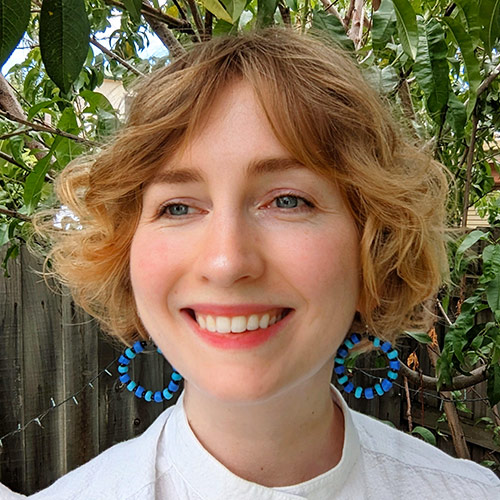
Article


Read the full article at BBC Science Focus July 29, 2024
What if switching to a vegan diet could reverse your biological age, slowing down aging at a molecular level? New research shows this could well be the case!
Winding back the clock may sound like something out of a sci-fi movie, but a bold new study has found that eating a plant-based diet (even in the short-term) could indeed reverse your biological age, and even slow down the aging process.
The research project in question – the Stanford Twin Study, published in the journal BMC Medicine – was also the subject of hit Netflix docu-series, You Are What You Eat: A Twin Experiment, which gained significant traction earlier this year thanks to its compelling revelations on the health benefits of a plant-based lifestyle.
The study, and companion series, followed 22 pairs of adult identical twins over the course of 8 weeks, with one twin from each pair instructed to follow a 100% vegan diet, and the other adhering to an omnivorous diet.
Participants in both groups were told to eat meals high in veggies and fibre, and to minimise their consumption of refined sugars and grains. For the first four weeks, they were provided with nutritionally appropriate meals; in the latter four weeks, they progressed to preparing their own meals at home.
Results at the conclusion of the trial were impressive: The twins who had eaten vegan for two months had lost more weight, reduced their levels of ‘bad’ cholesterol, and improved their fasting insulin levels significantly more than their omnivorous siblings.
“Most strikingly, the pace of aging, which calculates how quickly one’s biological age advances relative to their chronological age, decreased by about 0.03 units,” explained the lead author of the study, Dr. Varun Dwaraka.
“This suggests that for every year these individuals age, their bodies age slightly less than they would typically expect.”

Furthermore, the vegan twins showed reductions in the estimated ages of many of their vital organs, including the heart and liver, as well as their hormonal, metabolic, and inflammatory systems.
There was a significant decrease in the vegans, but there was no change in the omnivores.
Dr. Varun Dwaraka, lead author, TruDiagnostic
On average, the twins in the vegan group had knocked around 0.65 years off their biological age, which was measured using a biomarker known as DNA methylation.
“DNA methylation and other epigenetic modifications work like a volume knob for our genes, turning their activity up or down,” said Dr. Lucia Aronica, one of the study’s co-authors.
“As we grow older, the pattern of these methyl groups on our DNA changes … By studying these patterns, researchers can determine someone’s biological age, which might be different from their actual age based on years.”
As yet, there is no single, all-encompassing measure for testing biological age through epigenetics – so the research team used multiple measures, in addition to DNA methylation, to read participants’ “biological clocks”.
We didn’t really expect much from these clocks, which was the surprising bit … there were about 12 that showed consistent decreases in their epigenetic age.
Dr. Varun Dwaraka, lead author, TruDiagnostic

Researchers say that by recruiting identical twins for the study, they were able to eliminate one of the biggest confounding factors when it comes to studying diet and epigenetics: genetic variance.
This was the perfect kind of design because essentially what you’re doing is looking at two genetically identical individuals and then allowing them to have two different diet types and then seeing what the response would be.
Dr. Varun Dwaraka, lead author, TruDiagnostic
Individual lifestyle choices like exercise and diet are known to be epigenetic modifiers, with the potential to make people more or less susceptible to disease.
Although the study was carried out over just 8 weeks, experts have confirmed that the findings align with the results of other research that has been done into the protective and anti-aging properties of a plant-based diet.
This is very consistent with the current knowledge that a plant-based diet is associated with benefits for biological aging and other health conditions, such as overall cardiac health.
Alyssa Kwan, clinical dietitian in cardiology at Stanford Medicine
Unaffiliated experts and the researchers themselves agree that holding a longer trial in future would be valuable in strengthening the robustness of these findings.
“I’d be interested in seeing a follow-up study looking at biological aging in people who stick with a vegan diet for years, and a study where the vegan diet is removed to see how many of the biological changes revert to the baseline level,” said Dr. Lifang Hou, a professor of preventive medicine at Northwestern University.

The Stanford Twin Study is a timely reminder that our biological age – i.e. the functional health of our body on a cellular level – is dynamic, and, most importantly, modifiable.
Simply by making small, achievable changes to the way we live and eat, we each have the power to take charge of our own health and improve the way we feel on a daily basis, ultimately setting ourselves up for longer, happier, healthier lives.
And with more and more research coming out about the short- and long-term health benefits of plant-based living, there’s no need to wait to get started! The best time to dig in is now. ![]()
Grab your free veg starter kit today for tips on how to nourish and protect your body’s best health, one delicious plant-based meal at a time!

Having grown up in a “meat and 3 veg” kind of household, Liv’s embarrassed to admit that she was a bit of a one-note chef until she began exploring the world of plant-based food. Vegan cooking has given her a whole new appreciation for the symphonies of flavours that simple, nourishing wholefood ingredients can create. (Even eggplant, once her greatest nemesis, is now — in a delicious, miso-glazed redemption arc — her all-time favourite veg.)